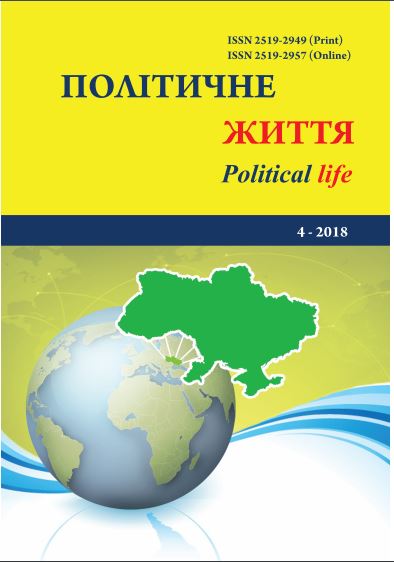Relations between Iraqi Kurdistan and Iraq in the second decade of the ХХІ: in search of the most optimal model of coexistence.
DOI:
https://doi.org/10.31558/2519-2949.2018.4.17Keywords:
Iraqi Kurdistan, Iraq, contradictions, referendum, independenceAbstract
The article analyses the dynamics of relations between the Iraqi Kurdistan and Iraq in the second decade of the XXI century. The causes of exacerbation of the contradictions between Erbil and Baghdad are revealed in terms of distribution of revenues from exploitation of oil fields in the north of the country and partnerships with foreign companies, financing from the federal Iraqi budget and control over disputed territories, which concerns, particularly, Kirkuk. Strengthening the controversy between Baghdad and Erbil on these issues coincided in time with the advancement of the terrorist organization "Islamic State in Iraq and the Levant" to the border with Iraq. The onslaught of Peshmerga’s efforts on Islamic terrorist groups, during which the Kurds managed to capture the territory that was the subject of disputes between Baghdad and Erbil, brought about significant changes in the balance of power between the central and regional governments in favor of the latter, which caused even more tensions between the Iraqi Kurds and the federal forces and actualized the discussion of independence. The paper analyses the approaches of the leading Kurdish parties in Iraq to the referendum on the independence of the Iraqi Kurdistan, examines the motives of the Kurdish regional government regarding the nation-wide voting, as well as the reaction of both Baghdad and Iraq’s immediate neighbours to the results of the voting in the Kurdish Autonomous Region. The author defines the most effective mechanism for protecting the interests of Iraqi Kurds with the preservation of the territorial integrity of Iraq and preventing the separation of Iraqi Kurdistan, which envisages both the reinforcing of its special status and the clear determination of the conflict resolution mechanisms alongside with the involvement of the international community and the provision of strong international guarantees.References
Anderson L., Stansfield G. Avoiding Ethnic Conflict in Iraq: Some Lessons from the Åland Islands. Ethnopolitics, 2010. pp.219-238.
Balcı A. ‘Energized’ Neighborliness: Relations between Turkey and the Kurdish Regional Government.SETA, 2014. 28 Р.
Denise N. The Kurdistan Region of Iraq: Stabilizer or Spoiler? Georgetown Journal of International Affairs, 2013. Vol. 14, No. 2. P. 71-79.
Johnson K. Fight Over Kurdish Oil Spreads to Texas Court. Foreign Policy, 2014. URL: https://foreignpolicy.com/2014/07/30/fight-over-kurdish-oil-spreads-to-texas-court/ (Last accessed: 23.08.2018).
McDowall D. A Modern History of the Kurds. London: IB Tauris, 2004. – 504 р.
Phillips D.. The Kurdish Spring: A New Map of the Middle East. Routledge, 2017. – 268 р.
Romano D. Iraqi Kurdistan: challenges of autonomy in the wake of US withdrawal. International Affairs, 2010. – pp.1345-1359
Voller Y. Kurdish Oil Politics in Iraq: Contested Sovereignty and Unilateralism. Middle East Policy. Vol. 20. No. 1. Spring, 2013. P. 68–82.
Tugdar E., Al S. Comparative Kurdish Politics in the Middle East: Actors, Ideas, and Interests. Springer, 2017. – 235 р.
Макаркин А. Иракский бліцкриг против курдського референдума. Oil&Gas Journal Russia, 2018. URL: http://ogjrussia.com/uploads/images/Articles/Nov17/22-27.pdf Last accessed: 23.08.2018).

